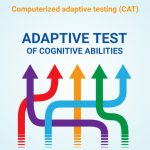…most of the psychological tests in the professional selection are more reliable than for example, EEG results. And who doubts the accuracy of EEG tests?
Situations in which organizations could benefit from the testing:
- „Old“or „established“methods of selecting staff have no results.
- Work efficiency is at a low level.
- The mistakes employees make have serious financial, health and safety consequences..
- Employee absenteeism is becoming a big problem.
- Current methods of staff selection do not comply with the current professional and/or legal standards.
The significance of targeted testing
Any type of method can be useful when it is used in the right way, but also harmful if used incorrectly. Incorrect use often occurs when a person misunderstands what it wants to assess or it put more emphasis on not so important characteristics. In order to choose a right method of assessment, it is important to understand what the assessment system is there for. In other words, you should know exactly what you want to assess and why. And after that – how.
An example:
I will take the example of an employer who had bad experience with new workers because they could not learn the new work procedure according to the ISO standards in his company. In order to finally chose the right people, the employer came up with the idea of asking the job candidates ISO related questions on the job interview. After a couple of questions, the candidates would (usually) feel confused, as the employers himself, so he gave up. What he tried next is that he would give manuals he used to people to read and talk about. He did this in order to see who was a fast learner. However, this wasn’t a successful method either because he hired a man who kept to himself and who was supposed to do a job of a sales executive. By the way, the most important traits a sales executive has to have are: to be people and goal-oriented, persuasive, to be able to work alone and in teams, patience, perseverance and the ability to communicate. After this, our employer found out that there are scientific tests that can measure the said competences and soon he solved the problem of employment. With the help of experts.
Tests and procedures limitations – mistakes in selection
Professionally developed tests and procedures which are used in a planned assessment program can help you in selecting and hiring good and productive candidates. However, it is important to bear in mind that all the methods of assessing can make a mistake, in assessing a certain characteristics (such as extraversion), but also in assessing achievement level (such as success in completing a job). This refers to all the tests and procedures, regardless of their eventual objectivity or standardization. However, most of the psychological tests in the professional selection are more reliable than for example, EEG results. And who doubts the accuracy of EEG tests?
A recommendation for the employers:
Don’t expect that the test will assess with one hundred percent accuracy someone’s personality, ability of job performance!
Because what will sometimes happen is that the test results or procedures hint that someone could be a good worker, and they will actually be a below or above average one – for a whole series of factors! Also, there will be times that someone gets a low score at the interview and doesn’t get hired because of that, but in reality he or she could be a capable and good employee. These errors in assessment context are called selection errors. Selection errors cannot be completely avoided, because they don’t depend only on the abilities of the candidates, but also a whole set of other factors: motivation, colleagues/co-workers’ perception, abilities to adjust to the team and similar…
Why does organization in the end conduct the testing, even though errors could occur?
Because a selection which is conducted in a professional way could help more in reaching good decisions regarding employing people, than just observing, making a decision on the basis of the interview or making a decision „based on intuition“. According to some sources, by hiring an experienced psychologist possible selection errors go from 86% to 70% or 20%.
Also, if you rely too much on one test or method of assessing, you could reach a wrong conclusion on the person. For example, if you are making your conclusion solely based on the proficiency test! On the other hand, using a bigger number of assessing methods will help you get a more complete impression on the job candidate.
The practice of using more tests and procedures with the aim of getting a more complete assessment is called the holistic approach in assessing future employees. This kind of approach can lead to a reduction of selection errors and increase the decision efficacy.
A recommendation for the employers:
In the selection process you should observe the person as a whole and shouldn’t pay too much attention on just the interviews, proficiency test and especially not to the tests you found on the Internet. Besides, you should bear in mind that, from a position of power, it is not nice to bother candidates with long interviews or illegal tests which are not connected with the required competencies.
Employers often unknowingly, but also sometimes knowingly bother candidates under the disguise of stressful work conditions with the following arguments: „How will a candidate deal with stressful and provocative situations at work, if he cannot control the situation now (during the interview)…“
A great deal of candidates pictures themselves, even before the interview, doing the job. When they get a couple of rude rejection letters, they think they are not worthy enough, they become resigned and they don’t trust the employers in the interviews that follow, so they approach the next interviews with less enthusiasm and trust, which once again leads to failure. In these circumstances, they have less and less self-esteem and/or confidence. Which later becomes a good basis for depression and other psychological disorders. Apart from this, most of the candidates are additionally burdened with test anxiety which sometimes leads to them appearing to be completely different than they are. And for every candidate there is a work position in which he could completely develop his potentials!
So, employers, we appeal that you test the candidates with quality and fast, keep the conversations short (not longer than half an hour) and send the candidates feedback.
 English
English



